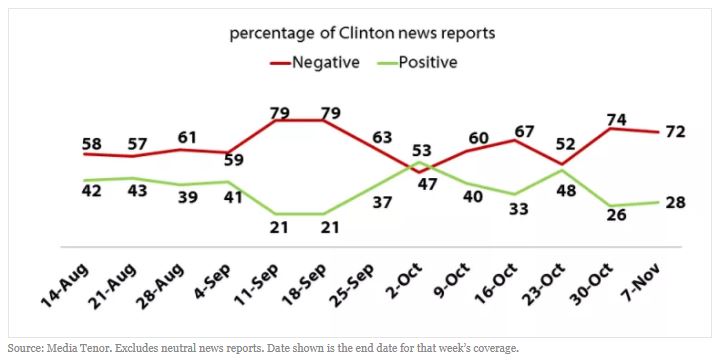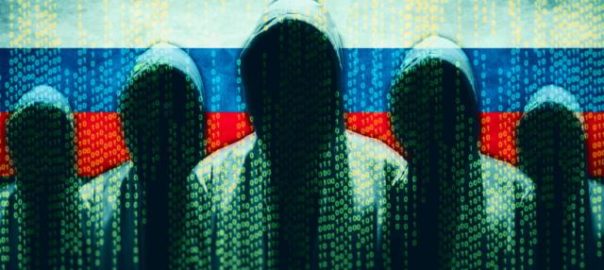By Kent R. Kroeger (Source: NuQum.com, February 21, 2018)
With special counsel Robert Mueller indicting 13 Russian nationals and three Russian entities last week for allegedly meddling in the 2016 presidential election, charging them with conspiracy to defraud the United States, the news media and their pre-approved pundits promptly delighted themselves with conjecture about how the Russians were the difference in the 2016 election.
“Friday’s indictments strongly suggest that the millions of Russian rubles spent to support and give credibility to Trump’s anti-immigrant, anti-Muslim, anti-black activist themes had to have had an impact in such an extremely close presidential election,” wrote CNN legal analyst Paul Callan soon after the indictments were announced. “Given what the indictments reveal, there is a strong probability that Russia’s surreptitious and illegal support handed Trump the presidency.” (I guess James Comey is off the hook.)
The major news outlets (except Fox News) are increasingly accepting the conclusion that the Russians tipped the election in Donald Trump’s favor. Unfortunately, the facts implicate the major news outlets as the primary force behind Trump’s election. Had the mainstream news media balanced their political coverage in 2016 Hillary Clinton would be president right now.
An Alien’s View of the 2016 Election
Imagine that somewhere in our galaxy there is a colony of alien jurists who conveniently appear on isolated planetary objects whenever their inhabitants are confused about some big question and they need an unbiased judgment.
Did the Russians change the 2016 election result?
If these aliens appeared now on earth, with no prior knowledge or biases about the 2016 U.S. presidential election, and were asked to decide if the Russians changed the outcome, their answer would likely be (in translation):
The American news media made Donald Trump a star, far beyond his merit or capabilities, and effectively ensured his electoral competitiveness and, ultimately, his victory.
Before rejecting this conclusion, consider (as the alien jurists would) the content, scope and duration of the Russian effort, as described in the Mueller indictment. The Russian operation pales in comparison to what the American news media did to help Trump.
Here are the relevant facts…
The February 16th Mueller indictment details Russia’s complex web of phony social media accounts, internet memes, Facebook ads, Twitter bots, and use of intermediaries (cut-outs) to enlist the services of “unwitting” Americans, all in an effort to achieve Russia’s operational goal of “spreading distrust towards the candidates and the political system in general.”
The Russian project, named Lakhta, had “multiple components, some involving domestic audiences within the Russian Federation and others targeting foreign audiences in various countries, including the United States,” said the Mueller indictment.
As to the impact of these intertwined efforts, Mueller’s team doesn’t go there. But they do offer interesting information on the budget and timeline of the Russian information operation. Through a Russian organization, the Internet Research Agency LLC (IRA), the indictment contends that IRA “employed hundreds of individuals for its online operations, ranging from creators of fictitious personas to technical and administrative support,” with an annual budget in the millions of dollars.
The money sums cited in the indictment are modest, but not insignificant. Reads the indictment: “By in or around September 2016, the Internet Research Agency‘s monthly budget for Project Lakhta submitted to CONCORD exceeded 73 million Russian rubles (over 1,250,000 U.S. dollars), including approximately one million rubles in bonus payments.”
Whether that monetary sum represents most of the Russian election meddling is unknown. But even if we are generous and assume the Russians spent $1.5 million-a-month for two years up to election day, that would only amount to $36 million dollars in total spending. Double that amount to account for the lower labor rates in Russia, and we are still only looking at around $80 million in equivalent spending.
And what did they get for $80 million?
- Created hundreds of fake Facebook accounts and bought advertisements which ran between June 2015 and May 2017, primarily focused on divisive social issues of which roughly 25 percent were geographically targeted;
- Created approximately 3,000 Facebook adverts that were possibly seen by 126 million Americans;
- Created fake Twitter accounts and, with the help of botnets, propagated and amplified fake news stories regarding the election;
- Through intermediaries and phony business fronts, helped fund some pro-Trump signage marches prior to the election.
- Though not specifically linked to IRA in the Mueller indictment, the Russian military intelligence service (GRU) most likely organized the hacking of the servers of the Democratic National Committee (DNC) and the personal Google email account of Clinton campaign chairman John Podesta and forwarded those emails to WikiLeaks, which released them in early and mid-October 2016;
- And undoubtedly more…
In comparison, the independent media analytics firm, mediaQuant, estimated in the year prior to the 2016 election day, Trump received $4.96 billion in “free media” compared to $3.24 billion for Clinton (see chart below).

Unfortunately, mediaQuant’s numbers are contaminated by the Russian factor. Thankfully, mediaQuant separates out “free media” by source which allows us (or the alien jurists) to deduct Trump’s “free media” advantage on social media (“blogs & forums) and Twitter. We are subsequently left with Trump having a $1.2 billion advantage over Clinton in “free media” within the news realms of online, broadcast, and print media.
However, what was the value of the GRU-hacked DNC and Podesta emails to the Trump campaign? According to mediaQuant’s sentiment analysis of the 2016 campaign’s “free media,” Trump’s media sentiment skewed more negative (23%) than Clinton’s (11%) in the last month of the campaign when the Podesta emails were released. Would it have been worse for Trump without the Podesta emails? Perhaps, but Trump’s coverage skewed negative relative to Clinton’s long before the release of the Podesta emails, according the Harvard University’s Shorenstein Center on Media, Politics and Public Policy (see two charts below).


“The daily dump of stolen emails has uncovered Clinton’s lucrative Wall Street speeches, lists of 39 potential vice-presidents and 84 potential campaign slogans, fresh questions over a conflict of interest with the Clinton Foundation and alleged advance warnings of debate questions…but there have been few revelations likely to alter the course of the race for the White House,” concluded The Guardian’s David Smith towards the end of the campaign.
Clinton supporters would disagree, but the Shorenstein Center data shows Trump didn’t close the media negativity gap until the release of FBI Director James Comey’s letter in late October. Blame Comey if you must, but Clinton supporters are barking at the wrong moon if they assert the Russian-hacked Podesta emails played a significant role in Clinton’s loss.
Instead, we are left with this simple comparison: $80 million in Russian efforts to disrupt the 2016 election, largely through memes and ads on Facebook and Twitter, versus $1.2 billion advantage in “free media” given to Donald Trump by the mainstream news media.
However, even that large monetary gap probably understates the superior impact of “free media” versus social media.
On Credibility, Print and Broadcast Media Still Trump Social Media
A communication channel’s credibility helps determine information’s likely impact on voters. Even in an age where people are getting more and more of their political information from social media, the credibility of the traditional news media still outpaces social media. According to a Pew Research Center study in February 2016, 76 percent of U.S. adults have a least some confidence in information they receive from national news organizations. In contrast, only 34 percent have at least some confidence in information garnered from social media.
Source credibility matters a lot as to whether information impacts opinions or vote preferences. In their study of economic voting in Denmark (hey, it’s country. Its relevant.), James Alt, David Lassen and John Marshall concluded, “It is primarily the objective credibility of a source and the sophistication of voters, not prior partisanship, that matters most for explaining when new information will affect political behavior.” Unsophisticated voters, as they put it, are not as likely to alter their opinions for any source, regardless of how credible the source might be.
In the final analysis, the Russians spent most of their money on an information platform people still don’t trust as much as the mainstream media. They may rely on social media more than ever for their news consumption, but the credibility required to move public opinion and behavior still resides with traditional news sources. The Russians would have spent their money more effectively bribing senior executives at the news divisions of the major TV and cable networks.
The Mainstream Media, Not the Russians, Created President Donald Trump
Answer this question: If you were a presidential candidate and God gave you the choice between receiving $80 million for a sophisticated social media campaign or $1.2 billion worth of media coverage by the major broadcast networks, online news sites, and print newspapers, what would you choose?
There is only one rational choice.
Take away the “free media” advantage CNN, MSNBC, and Fox News gifted Trump during the 2016 election, and the potential Russian contribution doesn’t come close to getting Trump elected.
That doesn’t mean the Russians didn’t try. They did. And that doesn’t mean they weren’t successful. On many levels, they were.
But they didn’t get Trump elected.
The mainstream media couldn’t turn away from the Trump phenomenon, and once they saw their ratings and readership numbers rising (as they did throughout 2016), the Trump “free media” advantage was hard-coded into the media agenda.
Where is the outrage at CNN and MSNBC for their role in the Trump victory? Why aren’t the Democrats and other Never Trumpers demanding congressional hearings on why the news networks would allow such a massive advantage in airtime and print space for one candidate over another? Why aren’t there marches in front 10 Columbus Circle in New York City demanding answers? Where are the special prosecutors? Subpoenas? Indictments?
At most, the Russians played in the margins. Sure, in an election where 70,000 votes tipped three states into the Trump column, those margins can make a difference. But professional reviews of the Russian-created Facebook ads and internet memes suggest the Russians were not very good at using Facebook and their ad copy was more often sloppy and unprofessional than compelling and persuasive.
“They’re shitty, they’re not done super well,” says Michael Bolen, VICE.com’s senior social editor, about the Russian Facebook ads. “If I wanted to influence an actual election, this isn’t what I would do.”
Another VICE.com executive, Rachel Kelly, says the Russia-made ads she’s seen put too much text on the photos, a mistake commonly made by advertising novices.
One Russian-created meme that didn’t make that mistake was also my favorite among those released by Facebook: Hillary versus Jesus.
Where the Russians seemed to do well, however, was in syncing their social media messages with the Trump campaign’s — and that wouldn’t require any formal coordination between the Russians and the Trump campaign, just a small team in St. Petersburg to track daily content on the Trump campaign’s website and social media platforms.
From what has been revealed so far by the Mueller investigation, the Russian-sourced election content is not likely to have changed votes overwhelming in one direction. If it changed any votes, it probably changed them in both directions. More likely, the Russian meddling reinforced opinions that already existed and caused an indeterminate number of Americans to become even more disengaged with the American political system.
Instead, Clinton voters should turn their gaze towards CNN, MSNBC, Fox News, and the rest of the mainstream news media for the surprise outcome on November 8, 2016.
Frankly, if the IRA’s $80 million media campaign had determined the election outcome, instead of indicting them on conspiracy charges, the two American political parties should start a bidding war to hire them for 2020.
What the Russians definitely did in 2016 was engage in some sophisticated spycraft and they caught the Obama administration flat-footed and unprepared. Even Podesta, among other Clinton operatives, has suggested the Obama administration was negligent in its early detection of the Russian meddling and too timid in its response.
And it is not just the Russians fooling around in other nations’ internal business. The U.S. has done it as well; in fact, in 85 countries since 1945. Ask the Israelis…and the Iranians…and the Venezuelans…and the Chileans…and…you get the picture.
Once the partisan-powered hyperbole and posturing subsides and Americans have some time to dispassionately reflect on the 2016 election, most will realize our democracy wasn’t irreparably damaged, our democratic institutions, manipulated by powerful interests as they were, remained intact, and our citizens didn’t lose faith in what our founding fathers created 223 years ago.
That’s the optimistic view…
We also may have just seen the Russians win the first major battle in what will become a perpetual worldwide cyber war where every social institution and individual citizen is positioned on the front line of this new battle space.
For now, I’m going with the optimistic view, but I’m preparing for the worldwide cyber war.
K.R.K.
{Send comments to: kkroeger@nuqum.com}
About the author: Kent Kroeger is a writer and statistical consultant with over 30 -years experience measuring and analyzing public opinion for public and private sector clients. He also spent ten years working for the U.S. Department of Defense’s Office of the Under Secretary of Defense for Personnel and Readiness and the Defense Intelligence Agency. He holds a B.S. degree in Journalism/Political Science from The University of Iowa, and an M.A. in Quantitative Methods from Columbia University (New York, NY). He lives in Ewing, New Jersey with his wife and son.


